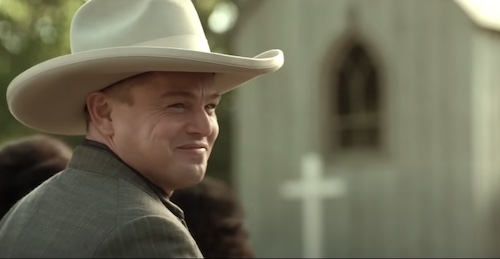
Killers of the Flower Moon is being lined up as a frontrunner for the 2024 Academy Awards and it's hardly surprising. Directed by Martin Scorsese, and starring Leonardo DiCaprio and Robert De Niro, it has an awards-worthy pedigree emanating from practically every frame.
Vast in both its length and dramatic scope, the movie explores the mystery of the early 20th-century Osage Nation murders in Oklahoma. A deadly conspiracy begins to unfold involving the deceased victims' families, the nascent FBI and the greedy prospectors looking to capitalise on the Osage's oil-rich land.
It's prime Scorsese territory, looking long into a dramatic abyss that encompasses compelling character weakness and fragile bonds of loyalty. The film is on release at Cineworld on October 20th and we've rounded up the formidable Oscars pedigree of its cast and crew.
The movie promises to be a singular Cineworld experience that absorbs and reflects the talents of several of Hollywood's greatest artists. Our following Oscars breakdown should incentivize you to book your tickets immediately.
Martin Scorsese
Won Oscar for Best Director (The Departed in 2006)
Every new Scorsese movie is required viewing for cinema fans. Yet remarkably, he didn't nab his first Oscar until 2006's The Departed, the blistering and brutal remake of 2002 Hong Kong thriller Infernal Affairs. This was in spite of a litany of Scorsese masterpieces including Mean Streets (1973), Taxi Driver (1976), Raging Bull (1980) and Goodfellas (1990).
Scorsese's early life in New York saw him vacillate between a potential vocation as a priest and the nefarious influences of the criminals occupying the Little Italy neighbourhood of New York where he lived. He eventually harnessed these dichotomies to develop philosophically rich, spiritually weighty and viscerally exciting dramas and thrillers that often, unashamedly, take a walk on the uglier side of life.
Right from his early years, Scorsese developed a quicksilver and visceral style involving fast cuts, accomplished integration of pop and rock and roll (The Rolling Stones feature heavily in his filmography) and a remarkable ability to elicit strong performances from his actors.
Killers of the Flower Moon is being lauded as another Scorsese masterpiece. It's a near-four-hour neo-Western that elaborates on complex thematic material present in other Scorsese pictures, taking a long, hard look at corruption, exploitation and sudden violence as related to the birth of contemporary America.
Scorsese's reputation for veracity has yielded in close collaboration with the remaining members of the Osage Nation tribe. This includes the presence of Lily Gladstone in the pivotal role of Mollie – she has been critically lauded for her depth of conviction, and the relationship is reciprocal.
Just as Scorsese has given Gladstone a platform for her abilities, in turn, he has said that her presence, and that of the wider Osage Nation, helped invest the project with greater dramatic impetus and authenticity. Find out more in the following video.
Leonardo DiCaprio
Won Oscar for Best Actor (The Revenant in 2016)
DiCaprio received his first Oscar nomination in 1993 for What's Eating Gilbert Grape. Yet it wasn't until 2016 that his potential was fully realised. DiCaprio won for his immersive and physically challenging role in the wilderness thriller The Revenant for which he plunged himself into icy rivers and slept inside an animal carcass.
It was DiCaprio's collaboration with Scorsese's muse Robert De Niro on the 1993 drama This Boy's Life that saw him recommended to the director. Nine years later, Scorsese and DiCaprio worked together for the first time on 2002's Gangs of New York. Their multifaceted collaboration subsequently gave rise to The Aviator (2004), The Departed (2006), Shutter Island (2010) and The Wolf of Wall Street (2014).
Despite acclaim for all of those performances and several Oscar nominations to boot, DiCaprio has yet to win an Academy Award for a Scorsese picture. Can his fraught and gripping performance in Killers of the Flower Moon turn that around? His role as the protean Ernest Burkhart, the man caught between indigenous cruelty and oil-rich exploitation, has been hailed by some as the best in his career to date.
Robert De Niro
Won Oscars for Best Supporting Actor and Best Actor (The Godfather: Part II in 1974 and Raging Bull in 1980)
Robert De Niro and Martin Scorsese go hand in hand as one of the greatest actor-director duos in the history of cinema. They first worked together on 1973's Mean Streets, in which De Niro cemented his on-screen volatility as the unpredictable wannabe hood Johnny Boy. Audiences were electrified and the partnership only got better from there.
De Niro and Scorsese entered the history books with the penetrating and disturbing drama Taxi Driver (1976), an uncompromising look at urban alienation. De Niro's portrayal of the isolated and ultimately violent Travis Bickle inspired future generations of actors with its intensity and method approach (De Niro drove a cab for real in New York and absorbed his experiences into the character).
It was clear that the two men were a force to be reckoned with. They arguably hit their peak with 1980's harrowing Jake La Motta boxing biopic Raging Bull, which reinforced De Niro's willingness to delve into the harshest and most unpleasant of character portrayals. It yielded him his first, and to date, only, Oscar win for Scorsese, and came on the heels of his earlier win for The Godfather: Part II in 1974.
De Niro's collaboration with Scorsese has been consistently diverse. He portrayed a jazz artist in New York, New York (1979), a ruthless mid-level mobster in Scorsese's classic Goodfellas (1990) and the terrifying psychopath Max Cady in Scorsese's 1991 remake of Cape Fear. The last of those movies yielded an Oscar nomination.
Another particularly memorable performance came in 1983's The King of Comedy, which despite its title is anything but humorous. It stars De Niro as the utterly deluded wannabe comedian Rupert Pupkin who turns to kidnapping his idol Jerry Langford (Jerry Lewis) to blackmail his way into the big leagues.
In 2019, De Niro and Scorsese united for the first time since 1995's crime epic Casino with The Irishman. Now, four years later, we again get to enjoy the pleasure of this unique working relationship. In Killers of the Flower Moon, De Niro plays Ernest Burkhart's unscrupulous uncle William Hale, the man at the centre of a spate of Osage Nation deaths, and potentially the man set to profit from murder.
Brendan Fraser
Won Oscar for Best Actor (The Whale)
For many, likeable Brendan Fraser is defined by the likes of George of the Jungle (1997) and The Mummy (1999). After an extended absence from the Hollywood scene, Fraser came soaring back into public view with his compassionate and sensitive portrayal of obese English teacher Charlie in Darren Aronofsky's The Whale.
Fraser's comeback narrative was cemented by his first Oscar win for Best Actor. He fended off formidable competition from the likes of Austin Butler and Colin Farrell, cementing the dramatic chops that had been seen in the earlier likes of Gods and Monsters (1998) and The Quiet American (2002).
A brand-new collaboration with Martin Scorsese re-affirms Fraser's newly minted status. In Killers of the Flower Moon, he portrays the nefarious William Hale's attorney W.S. Hamilton, one of the rogue's gallery of self-serving individuals circling the wealthy, oil-rich yet vulnerable Osage Nation individuals.
Eric Roth
Won Oscar for Best Adapted Screenplay (Forrest Gump in 1994)
Killers of the Flower Moon is adapted from David Grann's bestselling non-fiction book of the same name. Grann's text harnesses an exhaustive amount of research to paint an incisive yet bleak and ultimately terrifying account of the Osage Nation tragedy. The book's intricacy lays down a formidable gauntlet for screenwriter Eric Roth who is compelled to honour Grann's level of detail and historical sweep.
That said, Roth is well-versed in laying out the parameters of Hollywood epics. In 1994, he won an Oscar for Forrest Gump, translating the source novel into a whimsical yet expansive canvas for director Robert Zemeckis and star Tom Hanks. The movie traces an apparently simple man's decade-spanning odyssey across the American landscape and beyond, blending ironic insight with gentle warmth.
Roth's capacity for large-scale storytelling has also been put to use in David Fincher's The Curious Case of Benjamin Button (2009), another bildungsroman of self-discovery that traverses multiple decades.
The principles of Roth's earlier scripts are implicit in Killers of the Flower Moon, which similarly grapples with complex character motivation and extraordinary circumstances in the midst of the American landscape.
The following clip explores the importance of upholding true Osage Nation voices in Killers of the Flower Moon.
Thelma Schoonmaker
Won Oscars for Best Editing (Raging Bull in 1980, The Aviator in 2004 and The Departed in 2006)
As much as anything else, Martin Scorsese's movies are defined by their scalpel-sharp editing that helps articulate every character beat and moment of impactful shock. Step forward veteran cutter Thelma Schoonmaker who has worked alongside Scorsese since 1980's Raging Bull.
Schoonmaker helped carve out the bleak story of the rage-fuelled pugilist Jake La Motta, sculpting Scorsese and Robert De Niro's raw materials into a tough yet achingly sad study of self-induced isolation and anxiety. Schoonmaker's intuitive ability to either linger at length on a landscape (the opening credits sequence emphasising Jake's isolation) or cut in close for maximum visceral impact (the pummelling onslaught of the boxing sequences themselves) saw her distinguished with an Oscar, the first of three wins in her career to date.
Schoonmaker's later Oscar wins were also for Scorsese pictures. The Aviator is a handsome account of the tortured businessman Howard Hughes, offering Schoonmaker a rich opportunity to hone our understanding of both Hughes' neuroses and the wider-scale dynamics of Hollywood in the early 20th century.
The Departed, by contrast, owes more to Schoonmaker's remarkable work on the earlier Goodfellas, rocketing us through multiple character betrayals and violent conflicts through intentionally blunt and jagged transitions that practically exert a physical force on the viewer.
At nearly four hours long, Killers of the Flower Moon will allow Schoonmaker to proceed at a relatively more stately pace as she documents the slow build of terror that surrounds the Osage Nation. However, the shocks and revelations along the way will allow Schoonmaker to cut into the movie with even more impact, propelling the mystery toward its jaw-dropping conclusion.
Schoonmaker offers her insights in the following clip.
Are you ready to uncover the Osage Nation tragedy on the big screen at Cineworld? Click the link to book your tickets for Killers of the Flower Moon, opening at Cineworld on October 20th.
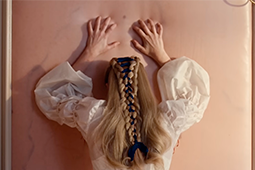

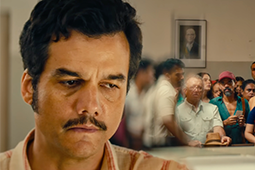
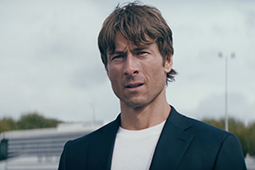

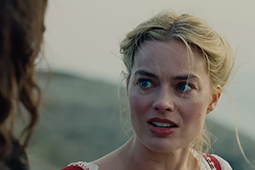
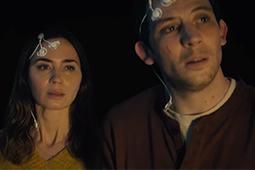
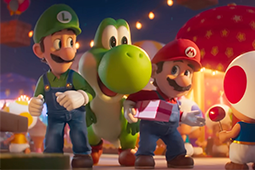
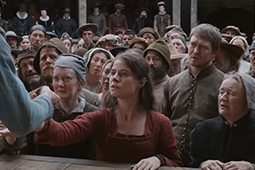
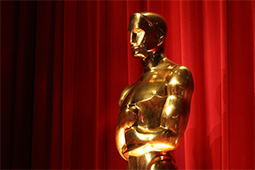



.jpg)
.png)






